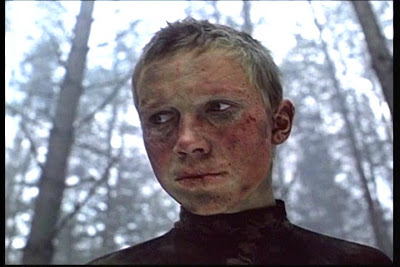That being said, Bigger Than Life is a Criterion release!

It's kind of unfortunate that Nicholas Ray (and James Dean, for that matter) is best known for Rebel Without A Cause. I'm biased, because a) I don't like it b) it was the only Nicholas Ray movie I'd seen prior to Bigger Than Life, yet I am still comfortable making this statement!
Where most Hollywood dramas of the 1950s might have sought to show the troubles of the everyday, suburban post-war American family, Bigger Than Life might be the first one I've seen to attack the very idea of these suburban families, and viciously so. Behind the already controversial critique of modern medicine and its "wonders" is a thinly veiled ("They're dull." "So are we.") launch against the complacency of 1950s middle America. The only thing more irksome than James Mason's sudden transformation into an egomaniacal douchebag is that there are moments where you can understand where his outbursts are coming from. He's a highly unlikeable character, post-cortisone addiction, and though he may have been a stranger in 1950s American society, he sure as hell isn't in 2010.

Things spin from uncomfortably realistic to ridiculous pretty quickly, but the extent to which they become ridiculous, is satisfyingly shocking for its era (a protagonist justifying the murder of his son with the Bible? locking his wife in the closet to do so?) as well as for its typical suburban setting. Bigger Than Life is loaded with scenes and dialogue I wouldn't have dreamed of seeing or hearing in Old Hollywood. Its ending is predictable, but had Barbara Rush never gotten out of that closet, Bigger Than Life would've never seen the light of day in the U.S.








